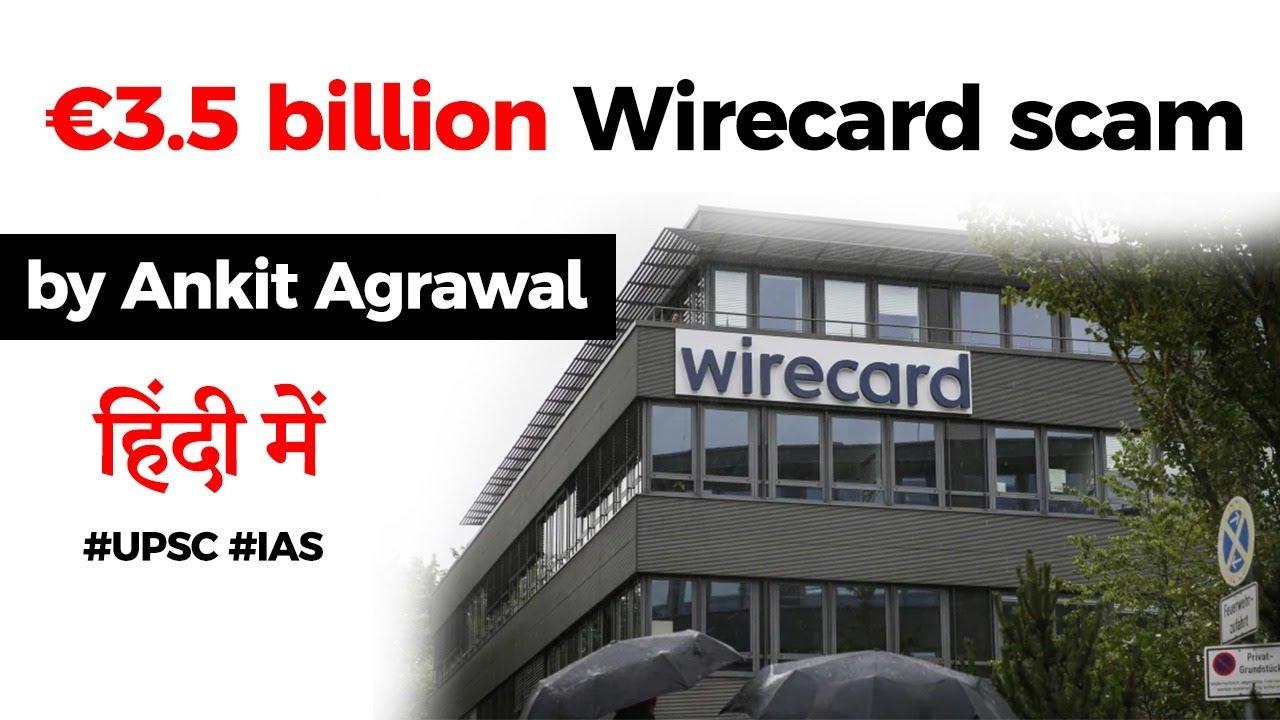Table of Contents
What is Wirecard?
- Founded in 1999, Wirecard offered electronic payment transaction services in all continents.
- At its peak, the company was valued at $28 billion.
- It was among the 30 listed companies on Germany’s prestigious DAX stock index.
What is the news?
- Wirecard collapsed on June 25 and declared bankrupt in Germany.
- Owing creditors more than €3.5 billion (almost $4 billion) after disclosing a gaping hole in its books that its auditor EY said was the result of a sophisticated global fraud.
What exactly happened at Wirecard?
- For many years, there had been complaints of accounting irregularities against Wirecard.
- Media reports and whistleblowers alleged the company had faked its sales transactions to inflate revenue and profits.
- Matters came to a head in 2019 after the Financial Timespublished a series of investigations into those claims
- Wirecard had then defended itself and aggressively hit back against critics, even suing the Financial Times.
- Later in 2019, the accounting firm KPMG was called in as an outside auditor to run an independent probe.
- In April 2020, KPMG dropped a bombshell, revealing that it could not verify cash balances of €1 billion,
- Also it was unable to trace vast sums of advances to merchants.
- The findings led to calls for the removal of Wirecard’s CEO Markus Braun.
June 2020
- In June 2020, the accounting firm EY, Wirecard’s auditor for over a decade, refused to sign off on the company’s 2019 accounts,
- Saying it had been provided false information about company accounts, and could not confirm whether balances worth €1.9 billion existed.
- Wirecard insisted the missing money had been sent to two banks in the Philippines — a claim that was refuted by both the banks
- Braun resigned on June 19, and three days later, the company admitted of a “prevailing likelihood” that the €1.9 billion did not exist.
- German authorities arrested Braun on June 23.
- On June 25, Wirecard filed for insolvency after talks with creditors failed.
- According to a Reuterssource,
- Wirecard faked two-thirds of its sales, meaning there would be no way it would be able to repay all its debt, notwithstanding all the legal challenges it will face.
- It owes its creditors around €3.5 billion, out of which €1.75 billion come from 15 banks plus a €500 million issued in bonds.
The biggest scam
- The scam, arguably Germany’s biggest since Volkswagen’s ‘Dieselgate’ crisis of 2015 and the Siemens corruption scandal of the late 2000s,
- Is being called “Germany’s Enron”– referring to the 2001 accounting scam by the US energy company Enron.
Public outrage
- The scandal has caused significant public outrage, and there have been calls to introduce regulatory reforms.
- The accounting firm EY is also at the receiving end of public anger.
- The firm could also face a wave of litigation.
- “If legal, legislative, regulatory measures are needed, we will embrace them and implement them,”
- German Finance Minister Olaf Scholz said.
- “A scandal like Wirecard is a wake-up call that we need more monitoring and oversight than we have today”.
Latest Burning Issues | Free PDF






















 WhatsApp
WhatsApp